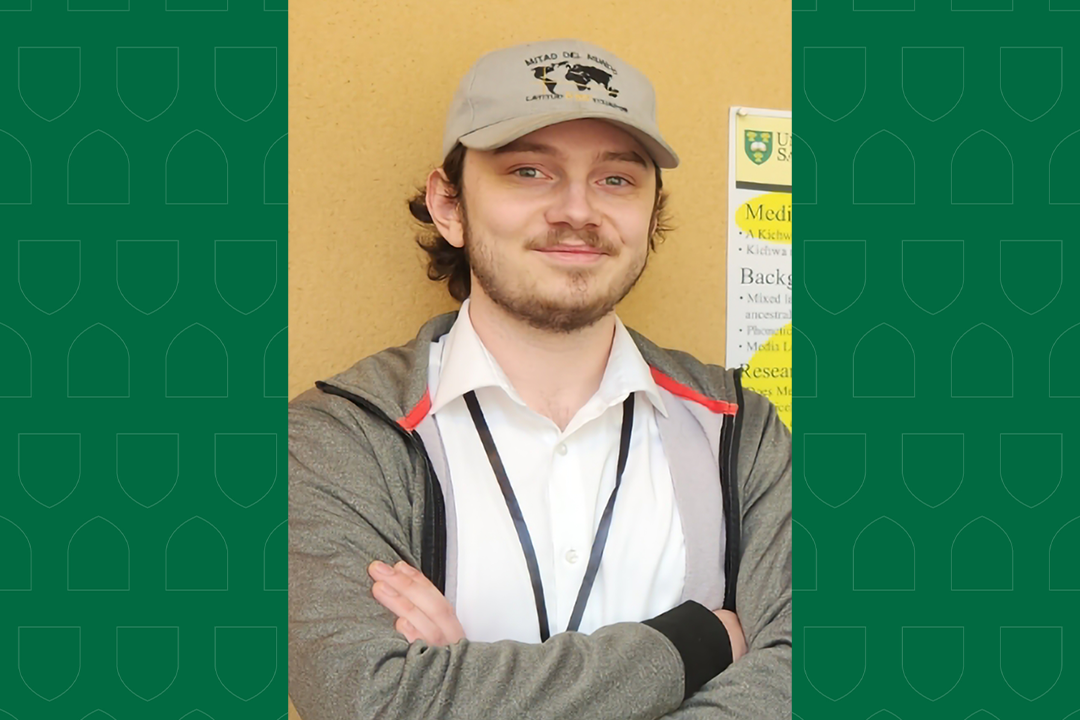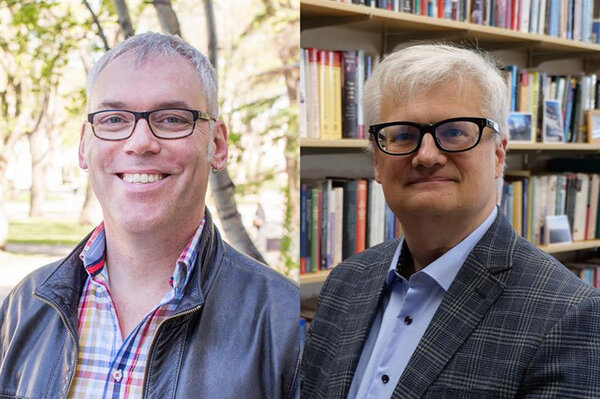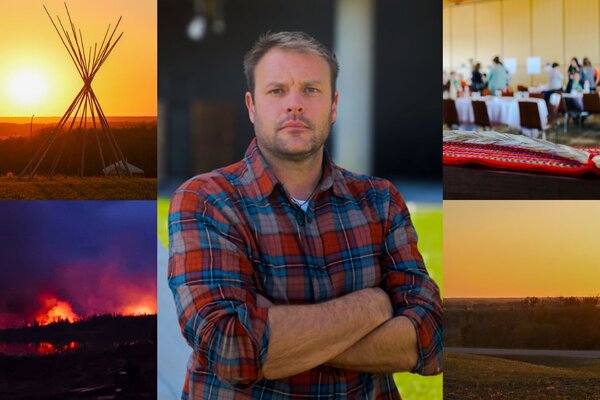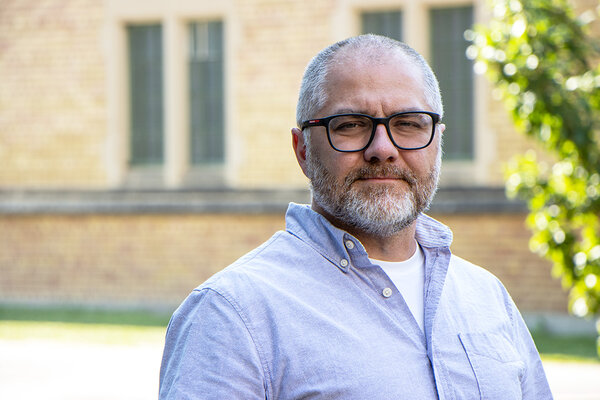
USask linguistics student awarded for international scholarly, research work
Arts and Science student Caelan Osborne discusses impact of international learning, research experiences
By Kristen McEwen
An Arts and Science student has been recognized by the University of Saskatchewan (USask) for his outstanding leadership and research work while studying abroad.
Linguistics undergraduate student Caelan Osborne has received the Global Research Leadership Award for Students from USask.
“Honestly, I was stunned. I couldn’t believe it was happening,” Osborne said, recalling his reaction to receiving the award.
“I really felt so honoured to get this (award),” he added. “I was also very grateful because without the resources or opportunities provided by the University of Saskatchewan, I wouldn’t have been able to do the things I needed to do to actually get this award.”
Osborne also credited the Department of Linguistics and faculty members Drs. Jesse Stewart (PhD) and Martin Kohlberger (PhD) for supporting his scholarly and research fieldwork. Both faculty members led research projects Osborne participated in and nominated him for the award.
“They’ve both really acted as mentors for me,” Osborne said. “They’ve guided me through this sometimes complicated world of academia—and without their guidance ... none of this would have happened. I’m very grateful.”
The Global Research Leadership Award for Students recognizes the exceptional contributions of a USask student or student-led team who has strengthened the global profile of the university through research activities, demonstrated international impact through their research, fostered diversification and inclusiveness of communities, or improved the quality of life in communities through research.
The university presents the award and a $1,500 grant to new recipients each year.
Each year, the university celebrates outstanding contributions of individuals who exemplify USask’s commitment to be the university the world needs. The awards celebrate scholars, teachers, innovators and leaders.
Osborne raised the profile of the university through his participation in taught-abroad courses and research projects in other countries.
Through a taught-abroad course in Scotland in May 2024, he interacted with grassroots organizations involved with the preservation of the Gaelic language on the Isle of Lewis. In June 2024, he travelled to Ecuador as part of another taught-abroad course with Kohlberger to conduct linguistic fieldwork and contributing to the documentation of Indigenous languages, including Media Lengua and Kichwa.
“My interest stems from having grown up in Canada where we have this dialogue about Indigenous languages, and language preservation and revitalization,” Osborne said. “When I was assisting Dr. Martin Kohlberger, (the project) was (facilitating) these communities to make the foundation of a language documentation project that would allow them to take ownership of the research of the documentation of the whole system of (language) preservation.
“I think that ownership is really important, especially taking into consideration the effects of colonialism throughout history,” he added. “I find it very moving, and I’m very honoured to be participating in these projects.”
Originally from Moose Jaw, Sask., Osborne recognized his experiences have broadened his worldview.
“I think one of the most important things in education is getting a broad view of things because our world is interconnected,” Osborne said. “The more you learn about various things about cultures and languages, the more interconnected things can be.
“I feel this has made me much more open-minded,” he added. “I’ve met people from cultures where I previously knew little about (them). I’ve heard new viewpoints. I’ve been introduced to new languages, and I feel that my worldview has really shifted to become much more global.
“I really feel it’s helped me develop personally but also help me realize the changes I want to help make in the world.”


